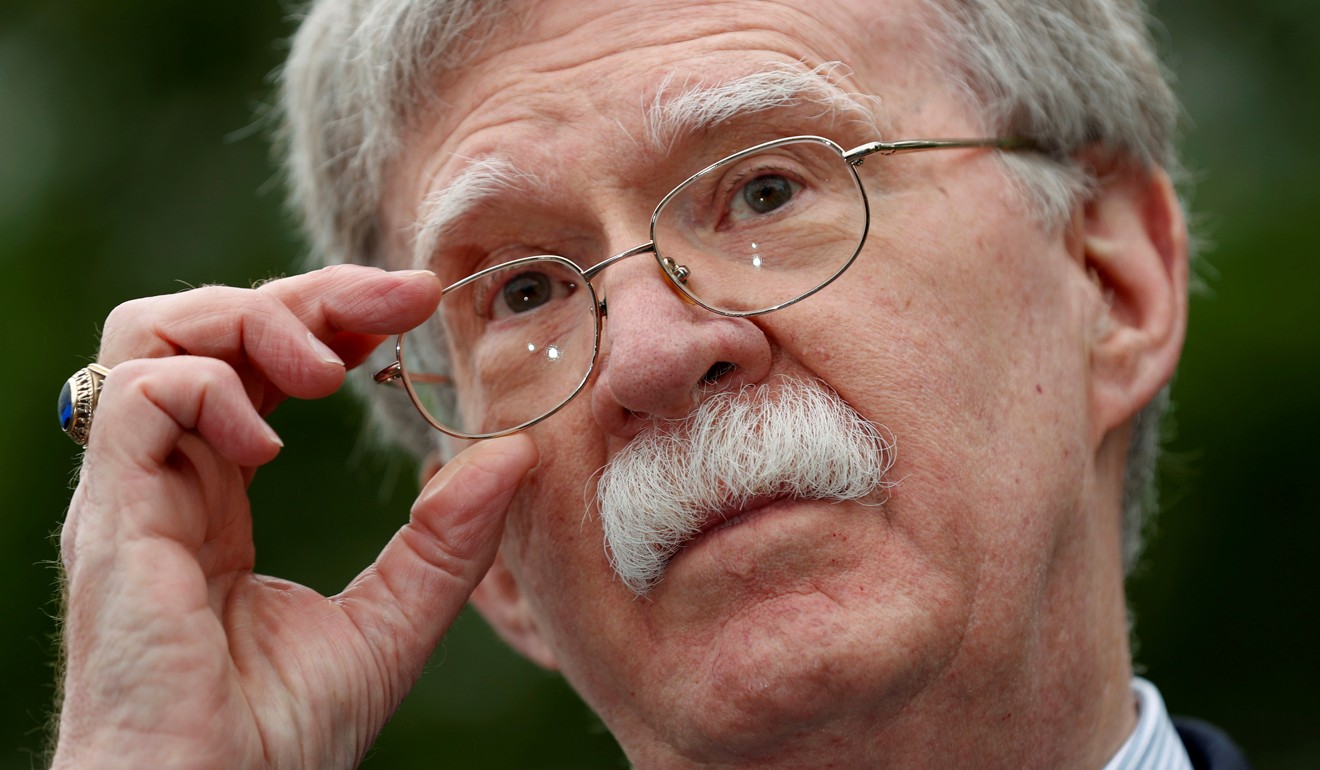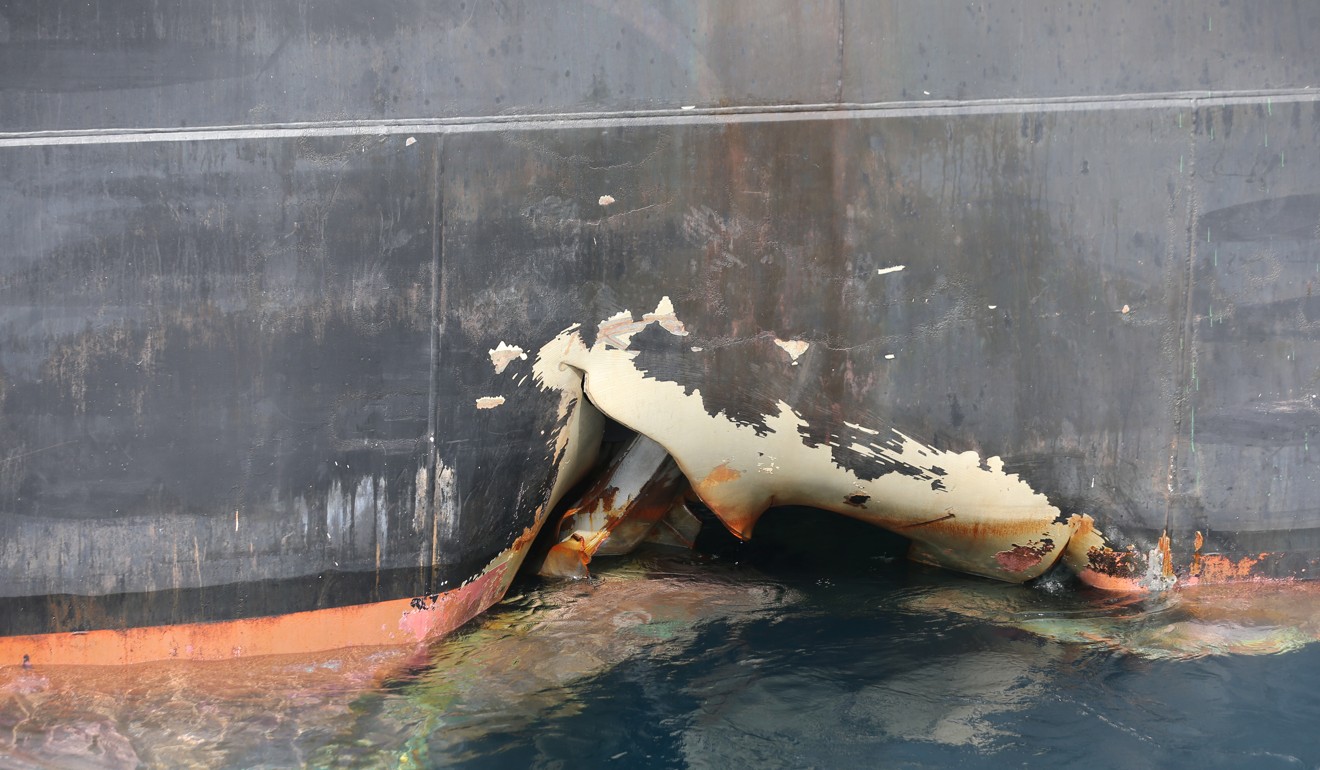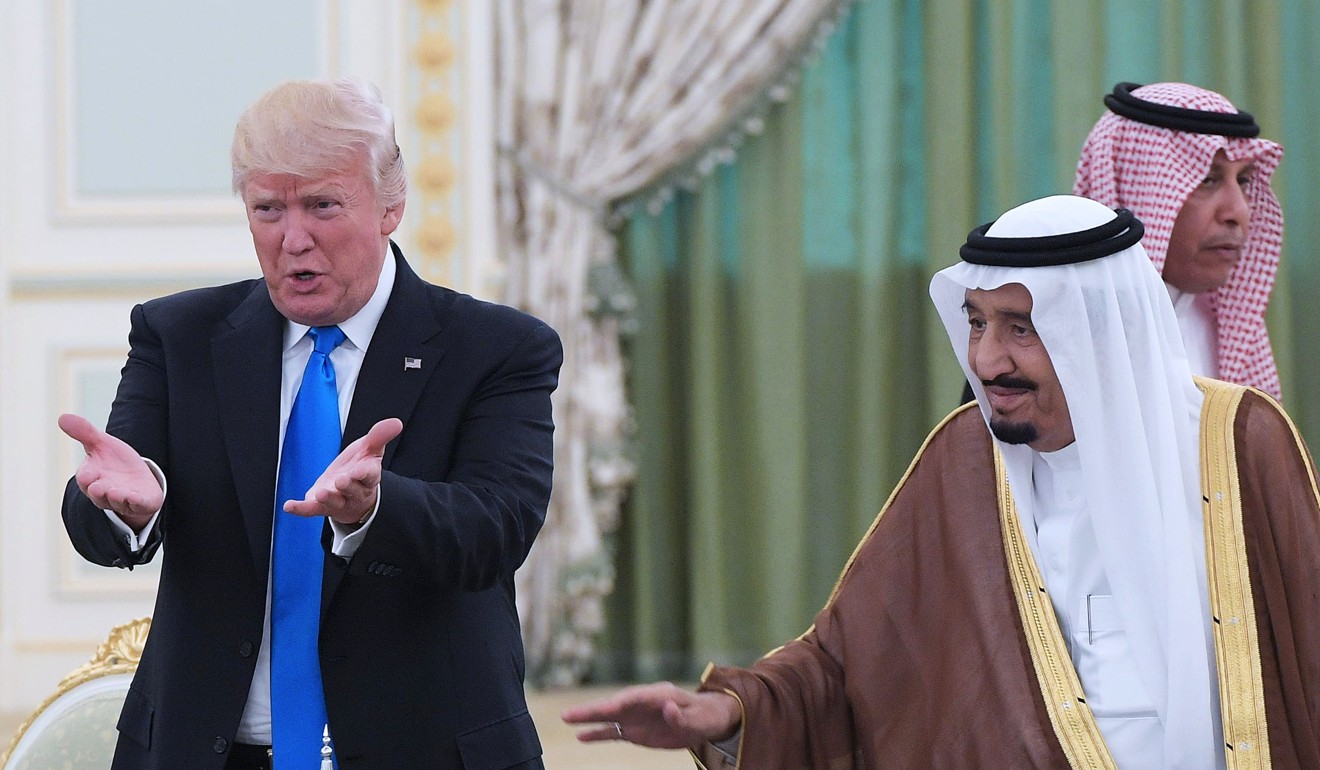
Iran ‘almost certainly’ behind oil tanker attacks off UAE coast, US National Security Adviser John Bolton claims
- Speaking in Abu Dhabi, Bolton’s accusations come as tensions soar between Washington and Tehran
US National Security Adviser John Bolton accused Iran Wednesday of “almost certainly” being behind sabotage attacks on oil tankers off the UAE coast this month, as he visited Abu Dhabi amid soaring tensions between Washington and Tehran.
The accusation, which follows a US military build-up in the Gulf, came on the eve of emergency Arab and Gulf summits called by Iran’s regional arch-rival Saudi Arabia to discuss the stand-off.

Bolton said that additional US forces in the region were sent as a “deterrent” and that Washington’s response will be prudent.
The four ships, including two Saudi tankers, were attacked by “naval mines almost certainly from Iran”, Bolton told a press conference in the UAE capital.
“There’s no doubt in anybody’s mind in Washington who’s responsible for this,” Bolton said in a clear reference to Iran.
US experts are part of a five-nation team that is investigating the May 12 attacks that damaged the four vessels in the Sea of Oman off the UAE emirate of Fujairah.
Two days later Yemen’s Houthi rebels – accused by Abu Dhabi and Riyadh of being proxies of Tehran – hit a strategic diversionary pipeline in Saudi Arabia with two drones.
The east-west pipeline, which has the capacity to carry some five million barrels per day from the oilfields of the kingdom’s Gulf coast to the Red Sea, was shut for two days as a result of the attack.
Bolton said that there has also been “an unsuccessful attack on the Saudi port of Yanbu a couple of days before the attack on tankers.”

Yanbu is Saudi Arabia’s largest oil terminal on the Red Sea and is home to oil refineries and export facilities.
Bolton said he would meet Abu Dhabi Crown Prince Sheikh Mohammed bin Zayed Al-Nahyan as well as his UAE counterpart, Sheikh Tahnoun bin Zayed Al-Nahyan, to discuss relations and regional tensions.
“We are responding and consulting more closely with our allies in the region to discuss what to do next.”
“We are trying to be prudent and responsible. We gathered evidence about the nature of attacks on the tankers and the East-West pipeline, and sent additional forces to act as a deterrent.”
Washington has reimposed tough sanctions against Tehran and ordered the deployment of 1,500 more troops to the Middle East.
Tehran called the attacks on the ships “alarming and regrettable”, and warned of “adventurism” by foreign players to disrupt maritime security.
Fujairah, where the attacks took place, is a key oil export terminal on the Sea of Oman that spares tankers the need to enter the Gulf through the strategic Strait of Hormuz, which Iran has repeatedly threatened to close.

Almost a third of the world’s oil supplies pass through the narrow strait between Iran and Oman which is the sole shipping lane into and out of the Gulf.
Regional tensions have spiked since US President Donald Trump’s administration reimposed sanctions against Iran after unilaterally pulling out of a multilateral 2015 nuclear accord signed with the Islamic republic.
Iran has announced it was backing away from the 2015 nuclear deal, which saw it limits its enrichment of uranium in exchange for the lifting of economic sanctions.
Bolton said that without more nuclear power plants, it made no sense for Iran to stockpile more low-enriched uranium as it now plans to do. But the US also earlier cut off Iran’s ability to sell its uranium to Russia in exchange for unprocessed yellow-cake uranium.
Iran has set a July 7 deadline for Europe to offer better terms to the unravelling nuclear deal, otherwise it will resume enrichment closer to weapons level.
Bolton declined to say what the US would do in response to that but he criticised Iran’s actions.
“There’s no reason for them to do any of that unless that’s part of an effort to reduce the breakout time to produce nuclear weapons,” Bolton said. “That’s a very serious issue if they continue to do that.”
Iran long has insisted its nuclear program is only for peaceful purposes. However, Western powers pushed for the nuclear deal to limit Iran’s ability to seek atomic weapons.
“This is just more graphic evidence that it hasn’t constrained their continuing desire to have nuclear weapons,” Bolton added. “It certainly hasn’t reduced their terrorist activities in the region that we just discussed or their other malign behaviour in their use of conventional forces.”
Regional summits are planned on Thursday and Friday in Mecca, Saudi Arabia, as Riyadh seeks to further isolate Tehran.
The Trump administration has ordered non-essential diplomatic staff out of Iraq, citing threats from Iranian-backed Iraqi armed groups, and sent an aircraft carrier and heavy B-52 bombers to the region.
Additional reporting by Associated Press

.png?itok=arIb17P0)